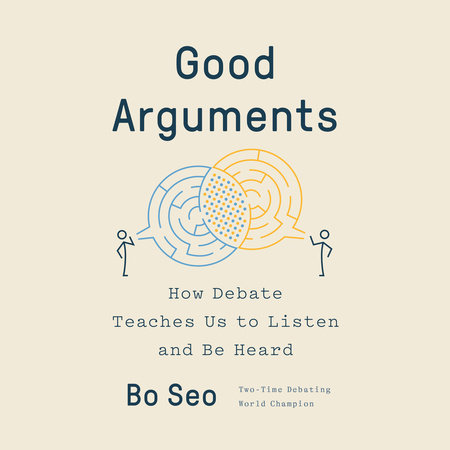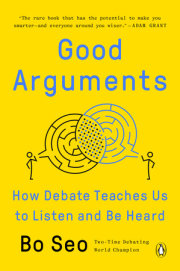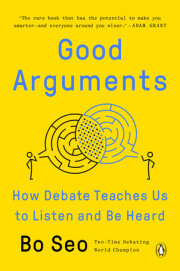1. Topic
How to find the debate
On a Monday morning in January 2007, a couple of months after my graduation from elementary school, the green gates at the entrance to Barker College served as a portal to a new world. For me and the other twelve-year-olds on the first day of middle school, the contrast between where we had been and where we were now felt stark. My former classmates had galumphed around the playground in loose interpretations of the school uniform, but the students on this campus, in their starched white shirts, seemed to be facsimiles of the children on the admissions brochures. Whereas the grounds at the Bush School had sprawled and tangled, the manicured campus of this all-boys middle school intimated an order of things-one I had good reason to learn, and fast.
By lunchtime, I had realized this would be no easy feat. In a school with a couple thousand kids, it made less sense to speak of one order than of multiple. The classroom conformed to one set of expectations-students referred to teachers as "sir" and "miss" and politely raised their hands to speak-while outside, on the playground, jungle rules prevailed. One carried on a certain way in the light-filled atrium of the music building and another way in the mildewy locker rooms next to the gymnasium. The place was a kaleidoscope of expectations.
Over my three and a half years in Australia, I had grown into a fine code-switcher. I had learned to toggle between the intimate language of home and the cheerful, shallow vernacular that school seemed to reward. However, the problem at Barker was that its rules and codes were illegible to me. What jokes were appropriate and when? How much should one reveal about oneself and to whom? I gleaned answers to these questions only by tripping over them.
In these first weeks of school, I never regressed to silence, but I found my comforts where I could. I fell in with a group of laconic, easygoing Aussie kids named-for neat alliterative effect-Jim, Jon, and Jake. Whereas the most ambitious kids in our class shook and fizzed and used every conversation to prove their virtues, the Js seemed to take things in their stride. In the afternoons, we shared a box of hot chips from the kebab shop-a staple of Australian takeout food-and not more than a handful of words.
What I never told them was that I had come to the school with a goal of my own: to join the debate team. Since my first competitive round in the fifth grade, I'd had only fleeting opportunities to revisit the activity. But I knew that the culture of debate was well-entrenched in Sydney's middle and high schools, most of whom maintained a team that competed, weekly, in a league. Debate occupied an odd place in the life of these schools. Like chess or Quiz Bowl, it provided a competitive outlet for unathletic kids but, unlike these other indoor activities, enjoyed a certain credibility on account of the reputation that its alums went on to do big things.
At Barker, anyone could attend debate training on Wednesday afternoons, but only one team of four students in each year group could represent the school at our local league on Friday evenings. To join the team, one had to audition. Ahead of trials in the first week of February, I sussed out the competition-"So this debate thing . . . ?"-but few people seemed interested. Perhaps this was going to be a piece of cake, I thought. Thank goodness for sports and other distractions.
But I was mistaken: the first round of trials, set to begin at four o'clock on a Thursday afternoon, attracted more than thirty kids. The white-paneled room on the top floor of the English building felt like the inside of a refrigerator; as the students arrived, alone or in pairs, dressed for the outside heat, they shuddered. Presiding over the auditions was the year coordinator, Miss Tillman, a history teacher with a stoic air.
Miss Tillman explained that we would not do a full debate for the audition. Instead, each student would be given a topic, a side (affirmative or negative), and thirty minutes in which to write a speech that covered two arguments for their position. In elementary school, we had prepared our cases over the span of weeks, often with the aid of teachers and the internet, but now we had to go solo against a strict time limit. "This audition format won't show me and the other judges everything," Miss Tillman said, "but it should reveal your . . . responsiveness."
In the waiting room, I stumbled on another discovery: some trialists seemed confident about their chances. The students who had attended Barker since the third grade made it known in the subtle way of twelve-year-olds that they had been successful debaters on the junior circuit and that they expected to continue their run. "We were successful on the junior circuit and expect to continue our run," one of the trialists said, before scanning the room for signs of comprehension.
Out of nowhere, I heard Miss Tillman call my name. I wondered whether she would give me some additional instructions or words of encouragement. Instead, she handed me a white envelope that contained a scrap of paper with a few handwritten words: "That we should have compulsory military service. Affirmative."
After I read that last word, things began to move fast. Everything before the envelope had been potential energy-a mind in search of an object, tension in need of release-but now the setting, a windowless nook next to the main waiting room, crackled with consequence. I found the experience of prep to be oddly liberating. The topic transported me to a new environment and assigned me a new identity. I went from being a twelve-year-old, uncertain of his beliefs and others' expectations of him, to an advocate in some chamber of deliberation.
The fact that I had no say in what I had to argue added, paradoxically, to this sense of freedom. I felt at ease to flirt with ideas, unencumbered by expectations of consistency or deep conviction (I didn't choose the side), and to explore every dark corner of contentious issues (I didn't choose the topic). In debate, the other word for topic was motion and, for these thirty minutes, that was exactly what I experienced.
Then, as Miss Tillman knocked on the door, I fell down to earth. In the audition room, a panel of three teachers sat behind a long desk. One of them, a rotund biology teacher whom I had met during orientation, managed a sympathetic look, but the others looked ashen-faced, worn down by the waves of children.
I found my place at the center of the room and focused my gaze in the gap between two panelists' faces-an ersatz form of eye contact that I hoped would pass for engagement. Then I began: "Everyone has a duty to ensure a country's safety. When we fulfill that duty through national service, we get more united societies, better armies, and happier lives." The combination of nerves and an eagerness to get noticed increased, with each word, my pitch and volume. I reached a near shout and spent the next minute adjusting down.
My speech had two points: that every citizen had a responsibility to serve and that this would result in a safer nation. In truth, the material resembled less a proper debate speech (whatever that was) than a rambling and passionate plea. "Look in your hearts and ask what you owe your fellow citizens," I implored in one of the more cringeworthy moments. However, I felt that some of my points on the effect of mandatory military service on national security had landed with the judges. As I spoke about the importance of giving political leaders a more direct stake in the fate of military operations, one of the exhausted judges seemed to briefly rouse from her stupor. The other speakers in my time slot were good but not unimaginably so. I felt I had a shot.
The next day at school, shortly after the start of recess, a notice appeared on the bulletin board near the canteen: debating team-year seven. Mine was the last name on the list, above the instruction to attend the first training session with the coach at four o'clock on Wednesday afternoon. Like the topic itself, the notice felt like a ticket made out to someplace new.
That the seventh-grade coach, a lanky college student named Simon, had been one of the most successful debaters of his year group at Barker seemed an improbable fact about him. Standing at the front of the room, Simon was the shade of pomegranate seeds-wine-dark and uneven. The edges of his voice crackled with self-doubt.
It was 4:00 p.m. on a Wednesday afternoon, nearly one week after the trials, and around a dozen students had gathered in the same air-conditioned room where auditions had been held. The four of us who had been selected for the team-Stuart, Max, Nathan, and I-sat near one another but exchanged little more than pleasantries. Of the group, I gravitated toward Nathan, a sensitive kid who put me in the mind of a naturalist. None of us acknowledged the chilling fact that only two weeks remained until the start of the league.
Then the session began and I witnessed a transformation. As Simon stood at the whiteboard and spoke about debate, he seemed to become a different person. Some internal force filled out his posture and rounded out his words. The color remained in his face but now took on a more vital, reddish hue. He uncapped a marker, then, turning to the board, wrote one word: topic.
"Cast your mind back to the last argument you had," Simon said. "Recall as much as you possibly can about the encounter: the setting at the particular time of day, the specific arguments, claims, and even insults.
"Now answer this question: What was the disagreement about?"
I thought about a series of tiffs with an old friend from the Bush School who now attended a middle school in a distant part of the city. The conversations were vivid in my mind, but I found Simon's question hard to answer. For some arguments, I could not remember the instigating dispute at all. As with bad dreams, the contents disappeared even as their effects lingered. For others, I could remember too much. These disagreements began with some trivial dispute and accumulated more mass-other disputes, perceived slights, past baggage-any one of which could be described as what the arguments were about.
"This is a problem. If you don't know the subject of the argument, how can you decide what or what not to say, which points to pursue or let go, and whether you want to have the argument at all?"
Simon referred to research from sociologists and linguists that posited that people are better at "talking topically" than actually staying on topic. That is, we give the impression of being relevant-often through a series of verbal cues such as "on that point"-while subtly changing the subject. Since most of us enjoy breezy, free-flowing conversation, we rarely take the time to consciously reflect on what we are talking about. "So we tend to drift, covering lots of ground but moving further from resolution," Simon said.
"However, debaters do the opposite. Every round begins with a topic. That's the first thing we debaters write-on our legal pads, on the whiteboard in the prep room. Consider it an act of naming: we name our disagreement and, with it, the purpose for our gathering."
Over the next two hours, Simon taught us more about topics than I had imagined possible-or healthy.
According to Simon, the topic is a statement of the main point on which two or more people disagree:
That Jane is an unreliable friend.
That the government should not bail out the big banks.
An easy test for whether a proposition is an appropriate topic is to write it in the negative form:
Both sides of the disagreement should be able to say that the statements fairly describe what they and their opponents believe.
The defining characteristic of a debate topic was that it allowed for two sides. So a general subject area such as "the economy" or "health care" could not be one because it did not identify the particular debate in question. Nor could a topic be a purely subjective opinion, such as "I am cold," since the other person could not argue that "no, you are not cold."
Broadly speaking, people disagreed about three sorts of things-facts, judgments, prescriptions-and each one gave rise to its own type of debate.
Factual disagreements center on claims about the way things are. They take the form "X is Y," where both X and Y are empirically observable features of the world.
Lagos is a megacity.
The crime rate in Paris was lower in 2014 than in 2016.
Normative disagreements concern our subjective judgments about the world-the way things are or ought to be, in our view. They take the form "A should be considered B" or "We have good reason to believe that A is B."
Lying is (should be considered) immoral.
(We have reason to believe that) tomorrow will be better.
Prescriptive disagreements relate to what we should do. These usually take the form "C should D," where C is the actor and D is an action.
Our family should get a gym membership.
The government should not impose limits on freedom of speech.
I found all this plenty interesting, but as the training session drew to a close, I also felt pangs of disappointment. Instead of secret strategies and killer moves, we had been given taxonomies; rather than sharpening our skills, we had taken a bunch of notes. I wondered whether competitive debate, like other high-skill games such as chess, tended toward esoterica until it could no longer sustain an analogy to real life.
However, later that same night, I stumbled on a reason to revisit my concern.
For the first couple of years of our life in Australia, my parents had seldom argued with each other or with me. Disagreements of opinion abounded, but Mum and Dad took the view that fighting about them was an indulgence we could not afford, not while so much work lay ahead of us. Though we had started to argue more openly in the past year or so, we still tended to elide points of conflict. This worked fine most of the time, but when one of us snapped, the resulting arguments were tangled and endless.
At this time, in the spring of 2007, almost four years after our arrival in Sydney, our family had begun to consider naturalizing as Australian citizens. In some respects, this was a bureaucratic decision that came down to such secular concerns as taxation. However, for my dad, the choice took on symbolic magnitude. Dad had been the consistent voice in our family for the importance of maintaining our cultural roots and, for him, the word citizenship carried real weight.
Copyright © 2022 by Bo Seo. All rights reserved. No part of this excerpt may be reproduced or reprinted without permission in writing from the publisher.






